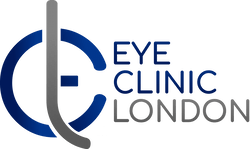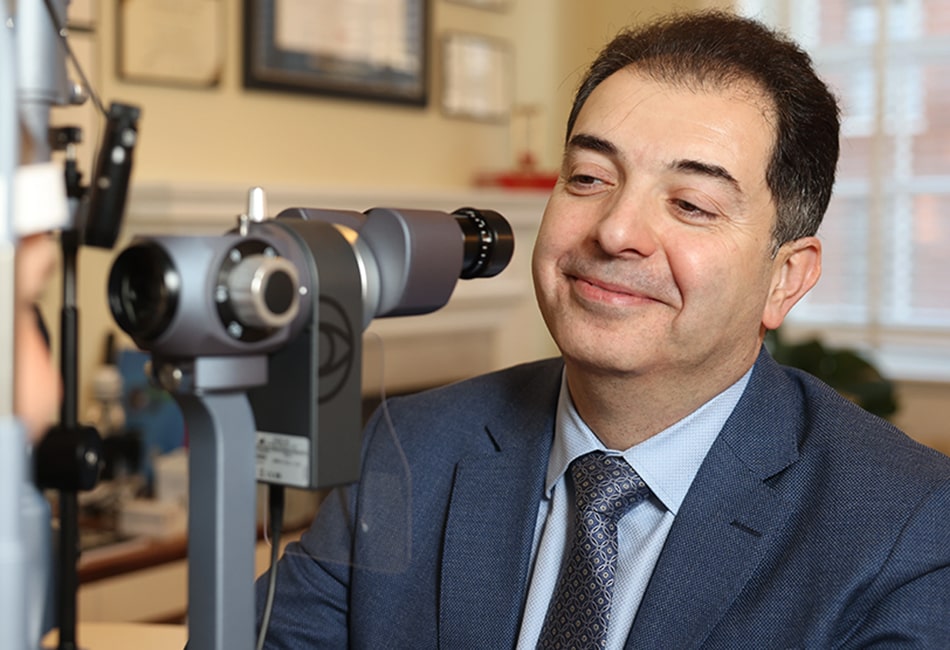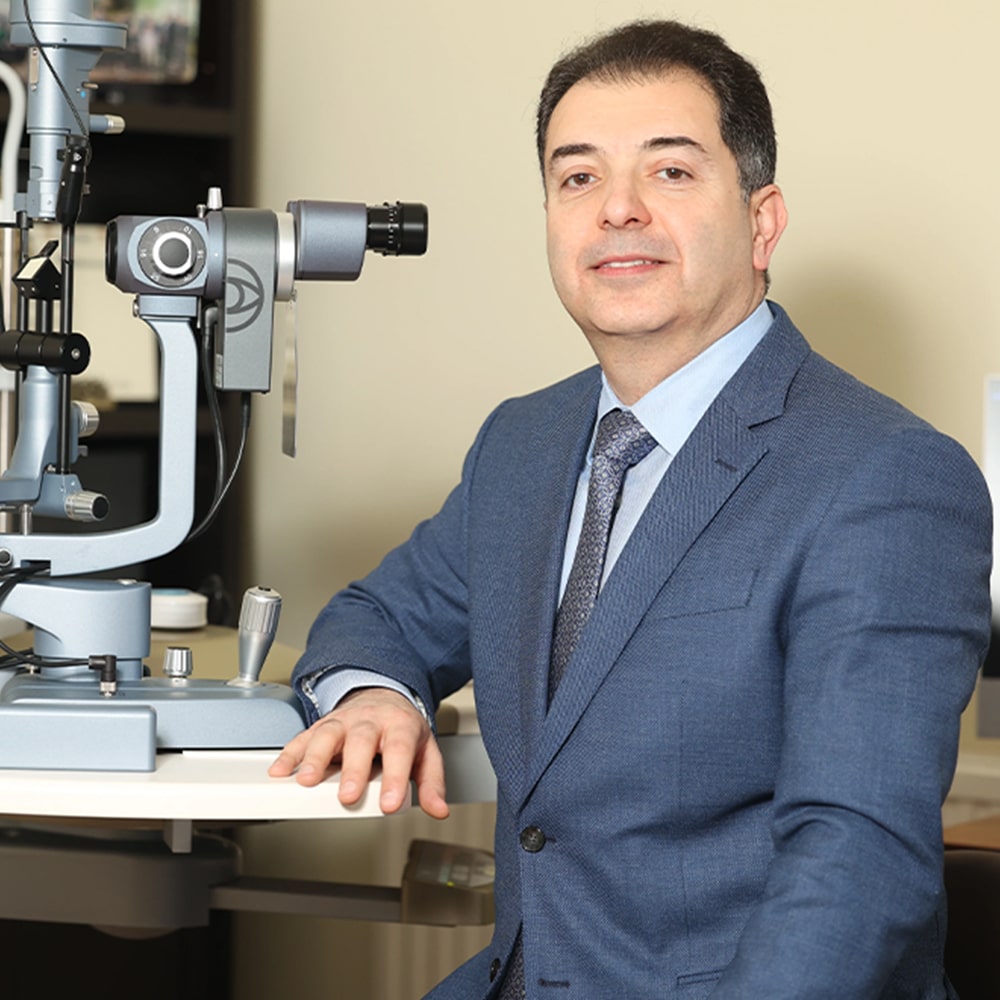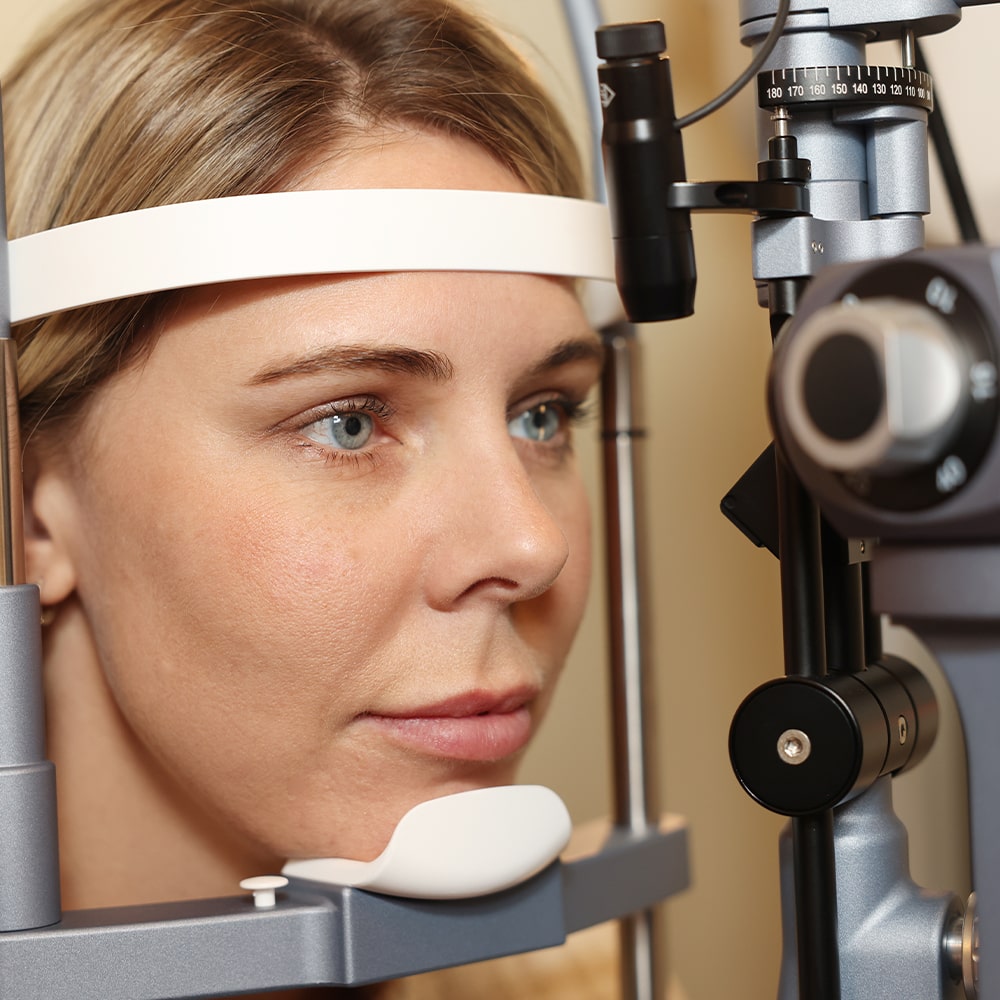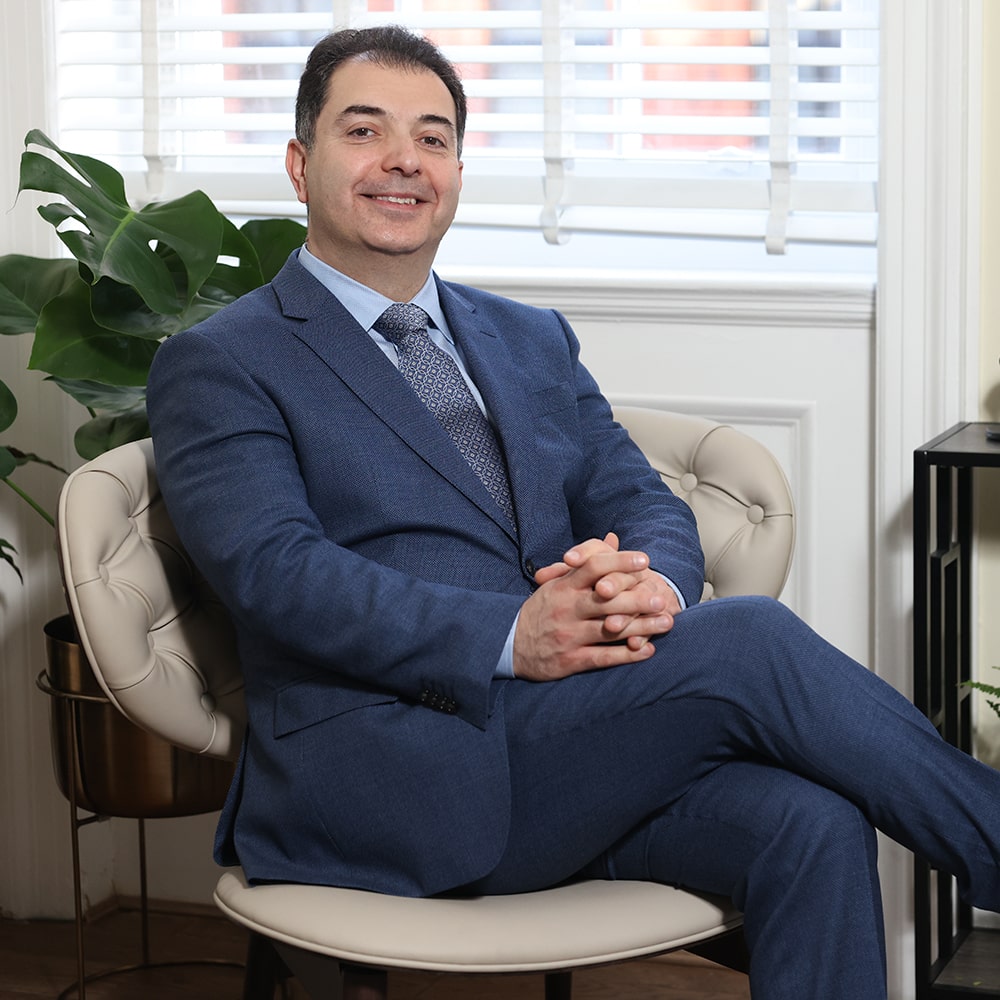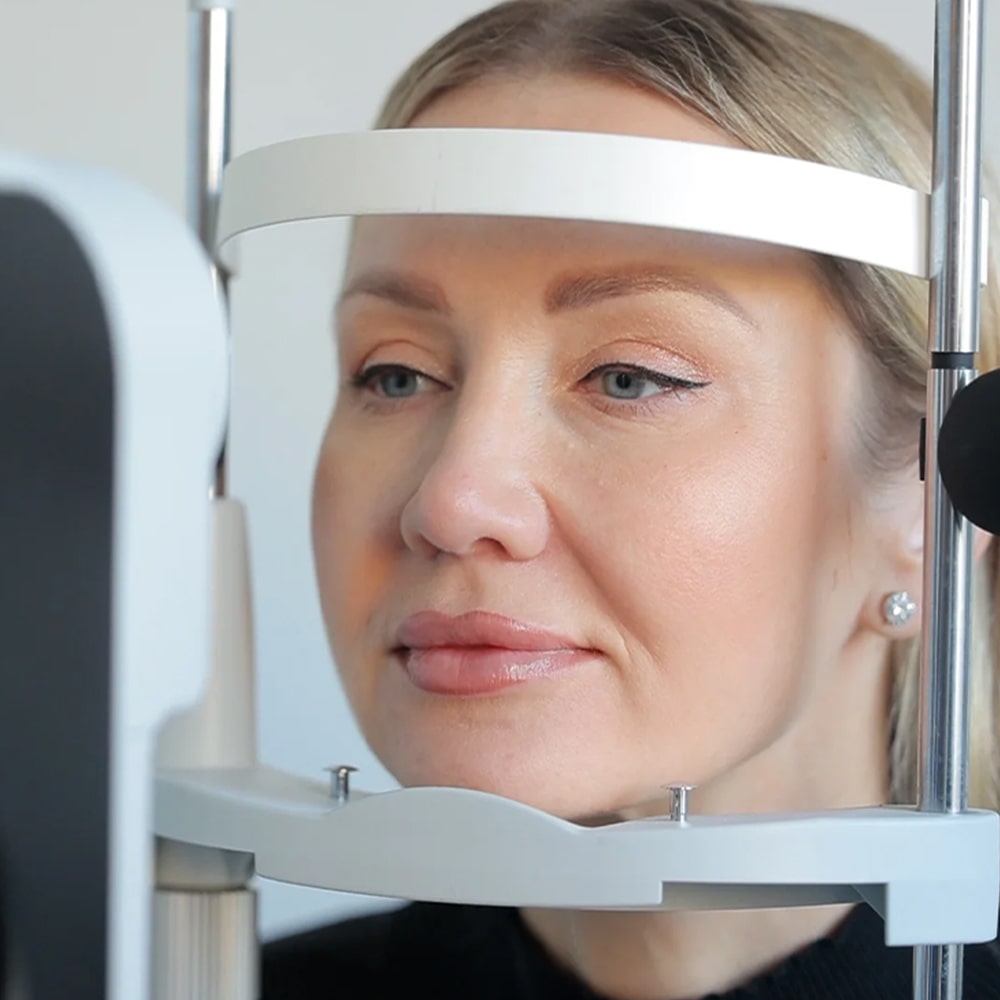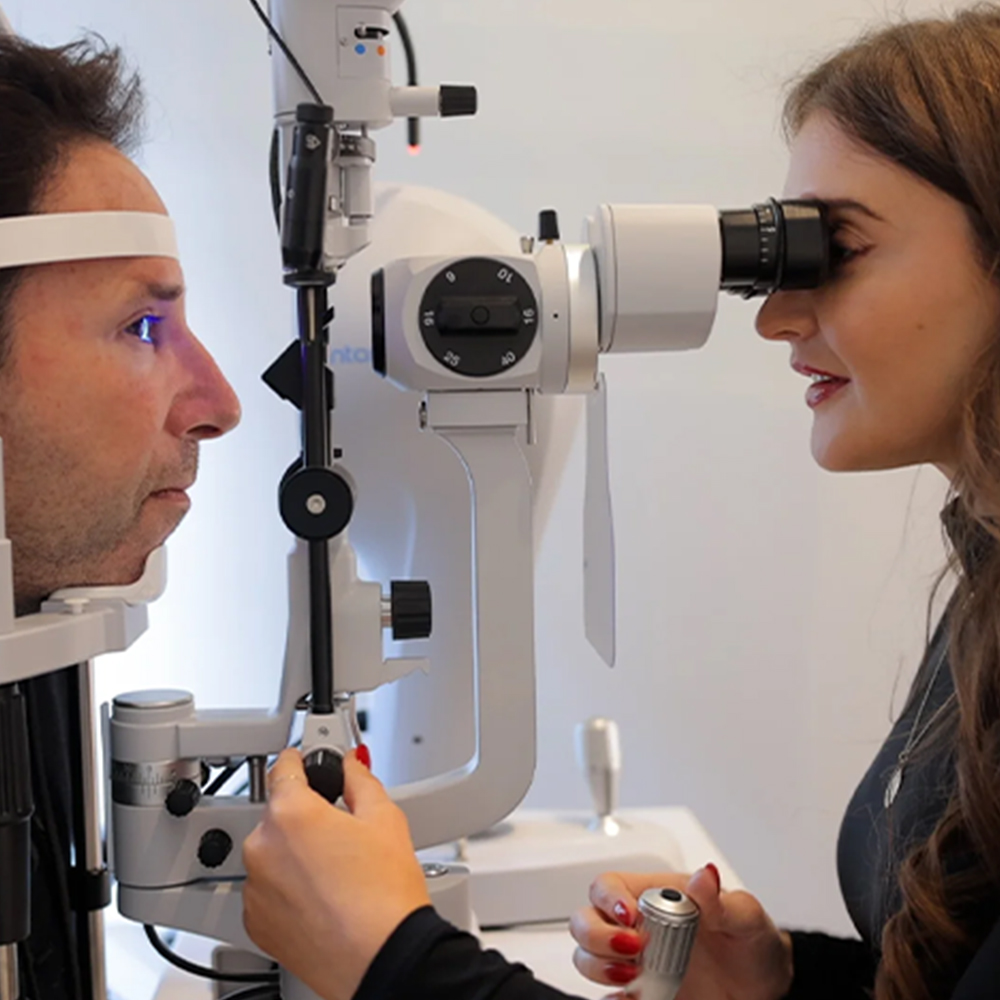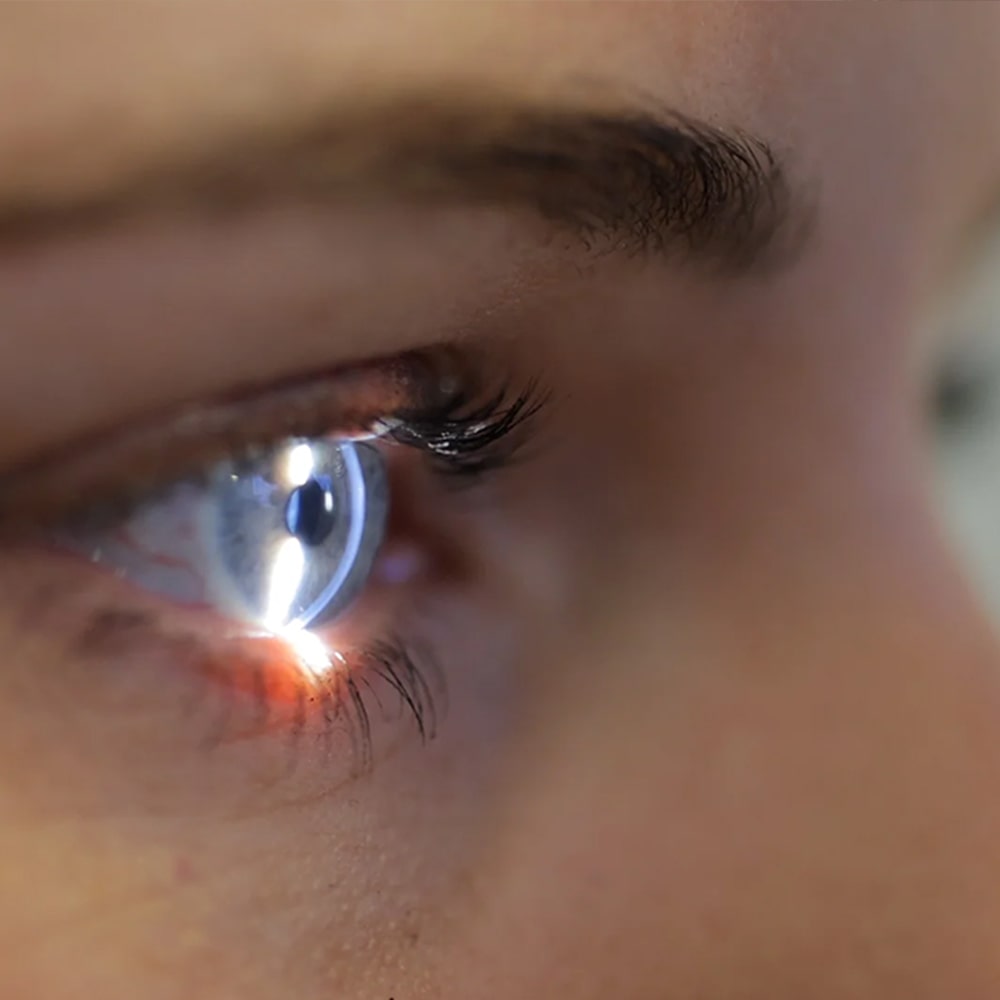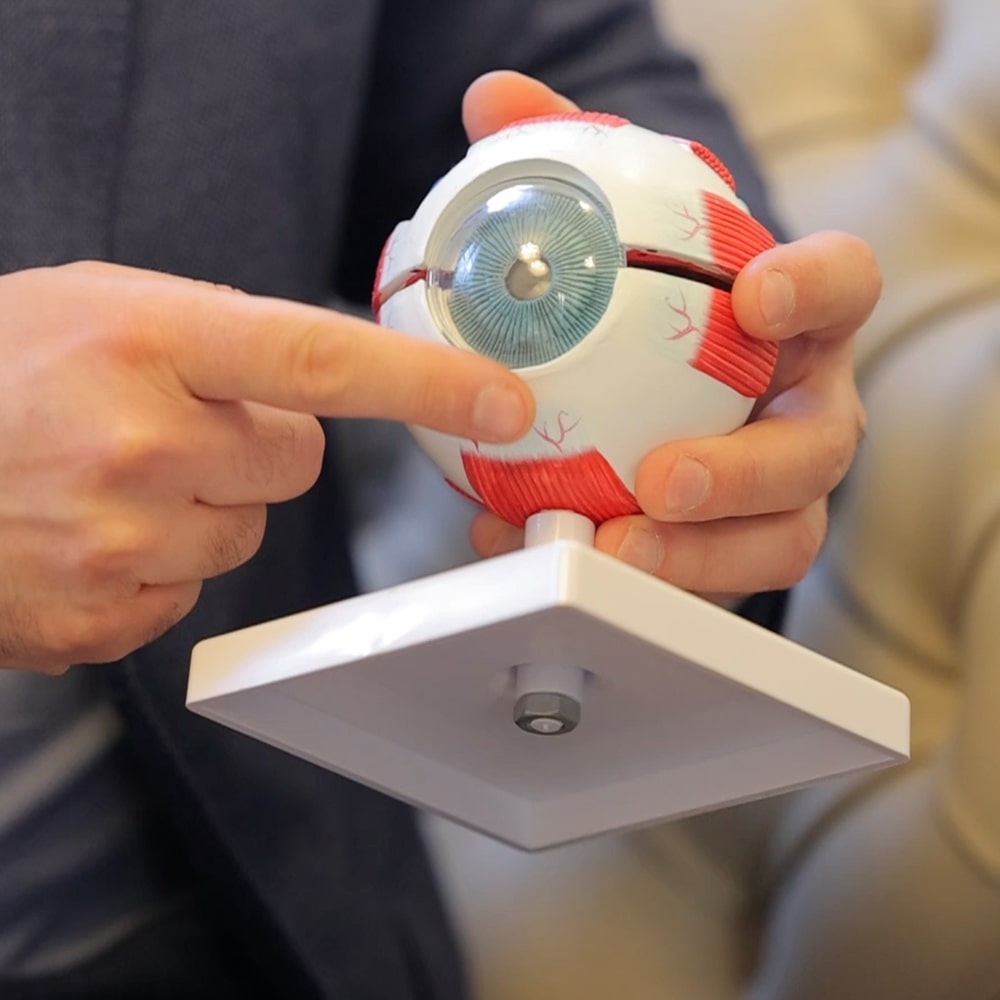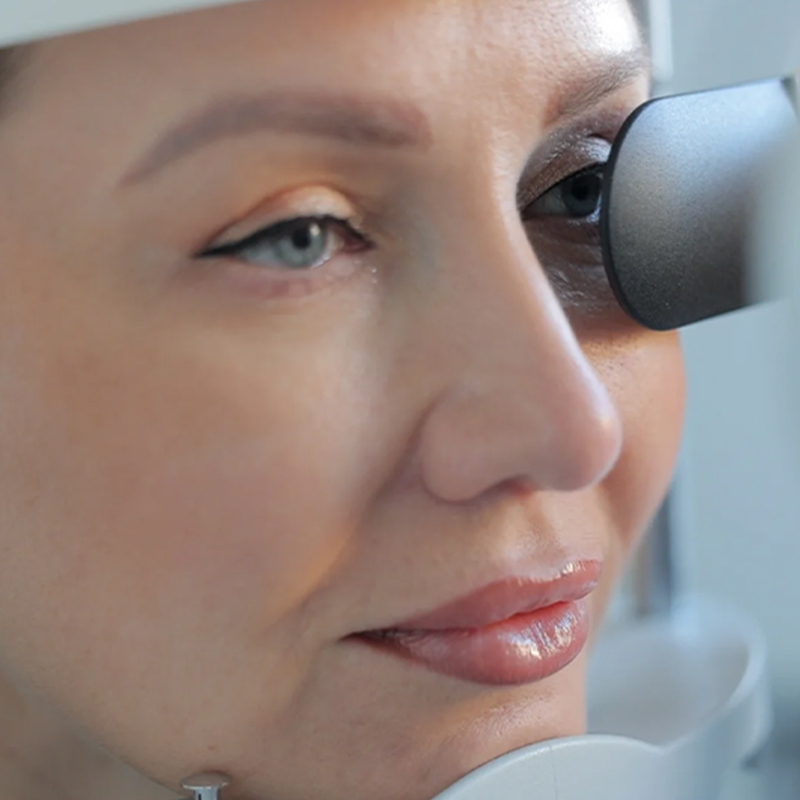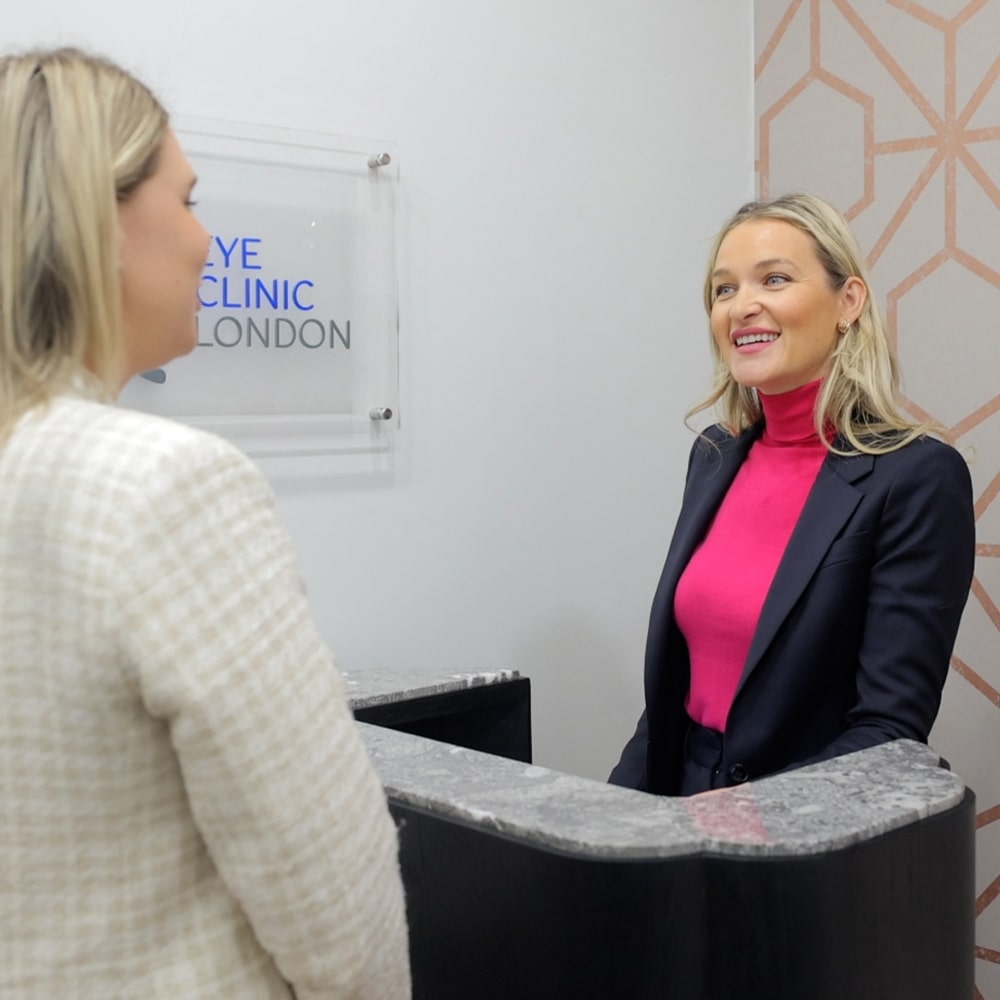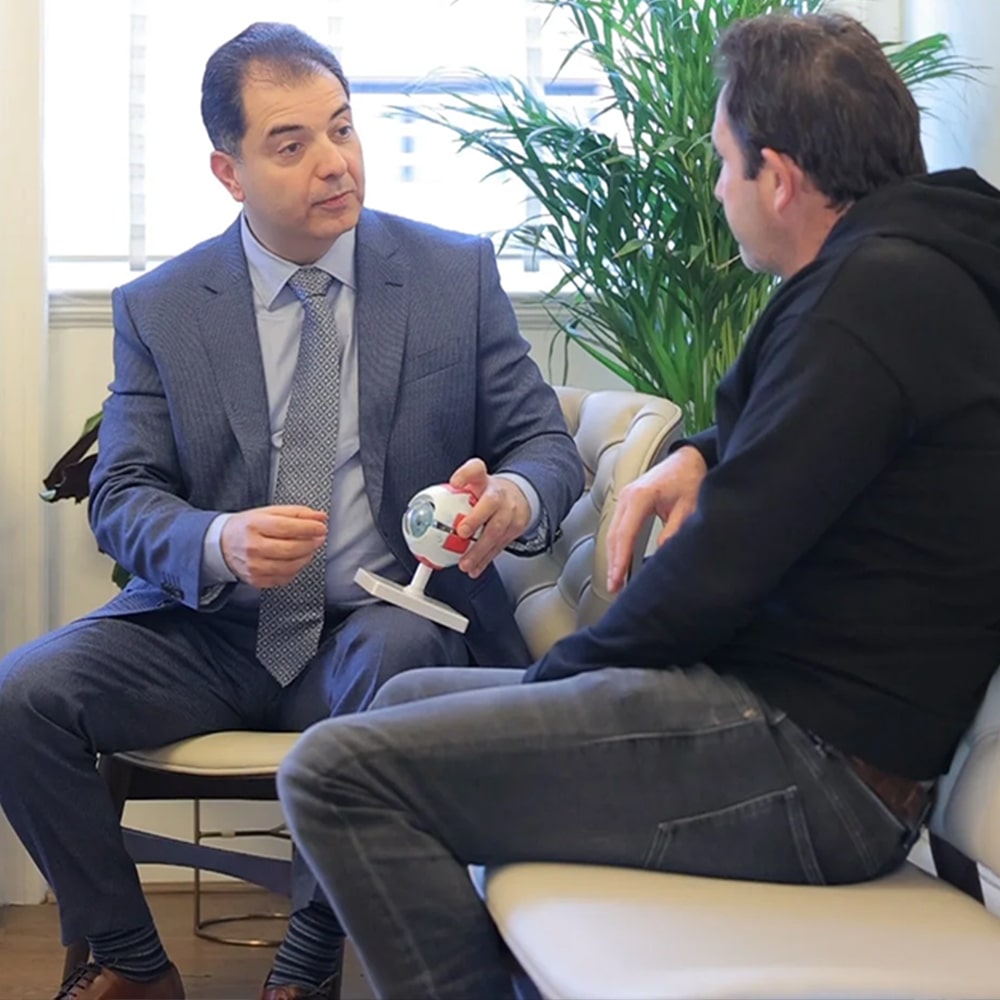What is Myopia?
Myopia, also known as nearsightedness, is a refractive error causing distant objects to appear blurry while close objects are seen clearly. This condition results from the eyeball being too long relative to the focusing power of the cornea and lens, or the cornea being too curved for the length of the eyeball.
At Eye Clinic London, we are dedicated to providing comprehensive care for myopia, including diagnosis, treatment, and unparalleled after-care.
Have you or someone you know, perhaps a family member or a friend, experienced any signs of myopia? If you’ve never had to deal with it yourself, it’s hard to imagine how frustrating it can be to miss out on the simple joys of life, like seeing a beautiful view on a vacation, not being able to fully enjoy a family day at the beach or watching your kids play at the park without squinting or straining your eyes. Simple tasks like watching a movie together and playing sport can be impossible without the aid of glasses or contact lenses.
Do you know what causes this common vision problem? Let’s explore the causes and symptoms of myopia and how it affects your vision.
